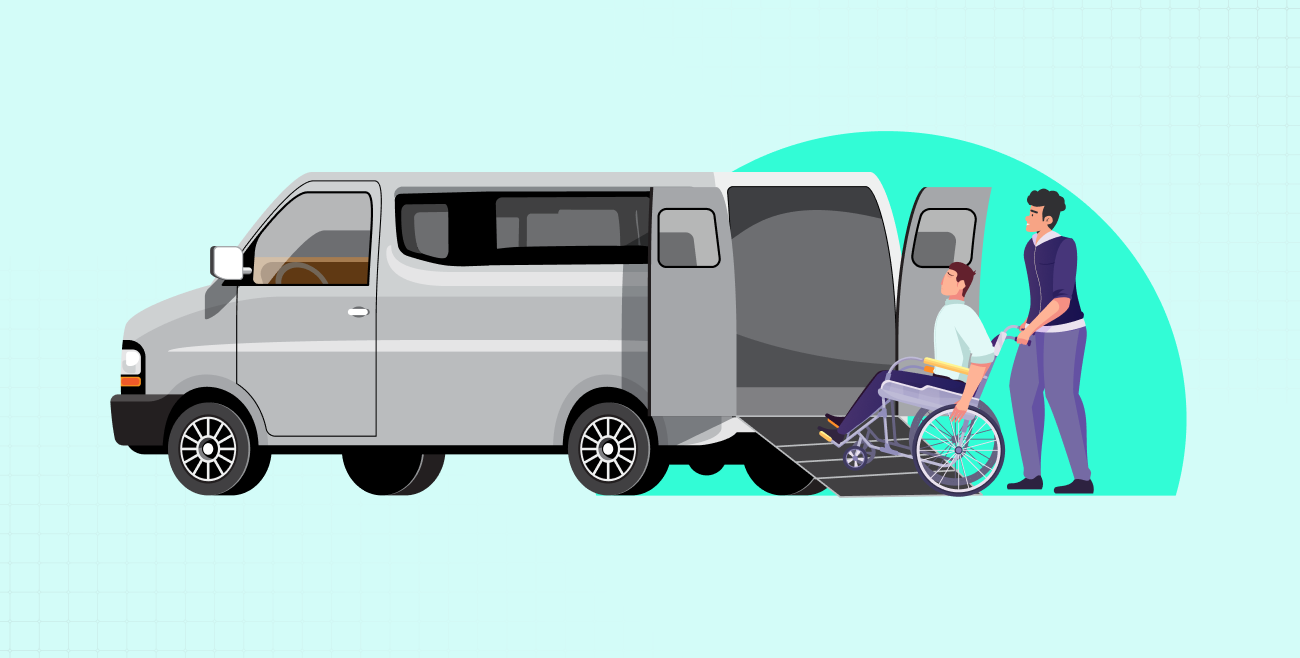
Table of Contents
The need for well-trained, safe, and experienced drivers in the non-emergency medical transportation (NEMT) industry has never been greater.
With the National Highway Traffic Safety Administration reporting close to 42,795 traffic fatalities in 2022, safely navigating the roadways is crucial.
Add that to the nearly 3.17 trillion miles Americans drove in 2022, and it becomes even more apparent that proper safety measures must be implemented to counteract the increased risk of driving accidents.
In this article, we highlight the critical role of advanced driver training in NEMT, emphasizing its integral part in providing passengers with safe travel and operating a successful business.
What is PASS Training for NEMT Drivers?
The Passenger Assistance Safety and Sensitivity (PASS) program, established by the Community Transportation Association of America (CTAA), is the industry standard for safety and sensitivity training for professional transportation providers.
Its primary aim is to equip drivers with the foundational knowledge essential for compliance with the Americans with Disabilities Act (ADA) while transporting passengers.
Do More with Less
Handle more trips with fewer dispatchers on your payroll with Tobi.
Request a DemoThe Significance of PASS
The PASS program’s inception was rooted in the need for a standardized safety and sensitivity training module that addresses the challenges faced by transportation providers.
Over the years, PASS has become an indispensable tool for NEMT drivers, emphasizing the importance of ADA compliance, passenger safety, and effective communication.
PASS Training Courses
The CTAA has established a range of training courses to enhance the skills and knowledge of transportation providers.
These courses are designed to ensure the highest standards of safety and sensitivity in passenger transportation.
- PASS Basic: Tailored for the digital age, this online course focuses on safety and sensitivity. The content is organized into modules, with each section concluding with an evaluation. To progress, participants must score at least 80%. If the participant doesn’t pass the course after three attempts, they must work with CTAA to reset it.
- Full PASS: Building upon the foundation laid by PASS Basic, the Full PASS course introduces hands-on training, focusing on Lift Operating Procedures and the techniques of Wheelchair Securement. Recognizing the importance of timely application, CTAA recommends completing this course within 90 days of finishing PASS Basic.
- PASS Train-the-Trainer: This comprehensive course is designed for individuals aspiring to become certified PASS trainers. It covers both theoretical nuances and hands-on methodologies vital for effective training. Completing both PASS Basic and Full PASS is a prerequisite, a testament to its rigor.
A PASS certification entails completing the relevant CTAA course and passing the associated assessment.
This certification not only bolsters the credibility of NEMT drivers but also assures passengers of their commitment to safety.
Familiarity with ADA Compliance
The ADA is a pivotal civil rights law ensuring equal opportunities and prohibiting discrimination against individuals with disabilities.
Its influence extends to various facets of public life, including transportation, making its understanding and application crucial for NEMT providers.
What is ADA?
Established in 1990, the ADA ensures that individuals with disabilities enjoy the same rights and opportunities as everyone else in American society.
The ADA mandates some modifications in NEMT vehicles. Although not specific to drivers, being aware of the compliance mandates is helpful, especially if vehicles are likely to cross state lines during trips.
PASS vs. ADA:
The PASS program is service-focused, training NEMT drivers to offer quality and sensitive service, especially to passengers with special needs. It’s about ensuring safety, sensitivity, and effective communication.
On the other hand, ADA compliance for NEMT providers represents a commitment to safe, efficient, and accessible transportation for everyone, with a strong emphasis on meeting legal standards. It ensures vehicles are equipped for passengers with disabilities and that drivers are trained to assist them.
The Role of Defensive Driving in NEMT
NEMT providers prioritize two essential aspects: driver proficiency and passenger safety.
Both require an understanding of defensive driving for NEMT scenarios and specialized training depending on the vehicle.
Defensive Driving
Defensive driving involves techniques that allow drivers to anticipate potential hazards and respond in ways that prevent accidents.
Essential components of successful defensive driving programs include:
- Vigilant observation.
- Maintaining safe following distances.
- Adapting to changing weather conditions.
- Steering clear of distractions.
If you are an NEMT provider and wish to improve your drivers’ expertise, consider enrolling them in a defensive driving certification course.
Several institutions offer such courses, including the American Safety Council, National Safety Council, AAA, DriversEd.com, and IDriveSafely. These courses are designed to enhance driving skills and improve the safety standards of professional drivers.
Vehicle-Specific Training: NEMT uses various vehicles, each demanding unique operational skills. Whether handling mobility aids in wheelchair vans, providing medical support in ambulances, or ensuring ADA compliance in sedans, each vehicle type requires specialized training.
Make Running Your Business Easier with Tobi
Harnessing the power of cloud technology, Tobi offers a seamless experience, from scheduling rides and managing fleet operations to monitoring rides to ensure passenger safety and compliance.
Designed with the challenges of NEMT providers in mind, it simplifies complexities, optimizes routes, and ensures every ride is executed with precision and care.
Tobi is easy to use and affordable, making it the perfect solution for NEMT providers of all sizes.
Are you curious how Tobi can help you run your NEMT operations more efficiently? Request a demo and experience how Tobi makes your business better at every turn.



